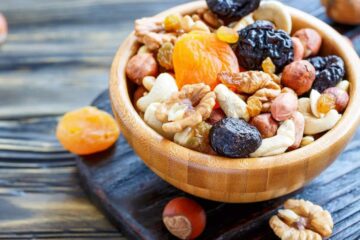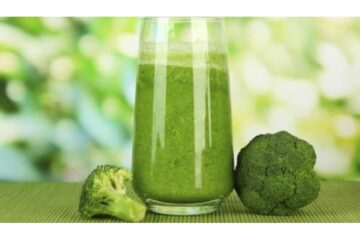The fixings to eat (and those to evade) when you’re attempting to understand pressure.
Wellbeing specialists caution that a waiting impact of the Covid pandemic could be an emotional wellness emergency. While treatment and prescriptions for stress and nervousness are frequently fundamental, the nourishments you eat can likewise assume a job in your prosperity.
An American Psychiatric Association survey delivered in March found that 36% of Americans felt the presence of the COVID-19 pandemic was seriously affecting their psychological well-being. Individuals were generally stressed over their funds, the danger of themselves or a relative getting the infection, and the chance of getting truly sick or biting the dust.
All the vulnerability encompassing the pandemic has expanded pressure and tension, prompting a more prominent interest for remedies for (and a few deficiencies of) upper, hostile to uneasiness and against sleep deprivation meds.
While it’s hazardous to regard food as a substitute for medication, eating for your mind wellbeing can help facilitate the effect of tension, sorrow and even post-horrendous pressure issue, said Uma Naidoo, a dietary therapist and writer of the new book “This Is Your Brain on Food.”
“During COVID-19 and whatever lies past this time, we envision a critical flood of these issues, explicitly tension, melancholy and stress,” she told HuffPost. “So food becomes one instrument [to feel better], since we as a whole need to eat.”
Individuals as of now center their eating regimens around other wellbeing objectives, for example, weight reduction or heart wellbeing. As the Covid keeps on overturning our lives, eating for psychological wellness can be similarly as significant.
The gut-mind association
The gut has been known as the “second mind.” And we perceive the connection between the two regardless of whether we don’t understand it: You may feel “butterflies in your stomach” when that is no joke “go with your gut” when you settle on a significant choice.
Naidoo said the two are associated genuinely and biochemically through the gut-cerebrum hub, the perplexing interchanges arrange that connects the passionate and intellectual focuses of the mind with intestinal capacities.
The premise of the “gut-cerebrum sentiment,” as Naidoo writes in her book, is the vagus nerve, a focal aspect of the sensory system that controls state of mind, invulnerable reaction, assimilation and other real capacities. It’s additionally a fundamental connector of the mind and the gastrointestinal plot. Stress can repress the vagus nerve, affecting gut microbiota and upsetting gastrointestinal conditions.
The focal sensory system additionally creates dopamine, serotonin and different synthetic compounds that manage temperament and cycle thought and feeling. Serotonin lack, specifically, can cause nervousness and sadness, and about 90% of serotonin receptors are found in the gut.
The gut-cerebrum association clarifies why what we eat influences our psychological well-being. “It’s not similarly as garrulous as the type of food you eat will affect you general health, yet that particular nourishments have either a beneficial outcome or a negative impact,” Naidoo said.
Deanna Minich, an Institute for Functional Medicine confirmed expert and useful medication nutritionist, likewise stresses the significance of diet to control aggravation in the body. “Having a solid, mitigating diet diminishes the other broken and even fiery ‘clamor’ in the body that can be at the underlying driver for side effects or sickness,” she clarified.
Nourishments that can help emotional wellness
The vast majority of the key supplements required for cerebrum and gut wellbeing are found normally in nourishments, so it’s generally best to pick food sources over enhancements, Minich said. However, dietary enhancements can fill in any supplement holes ― simply converse with a wellbeing proficient first.
For the best outcomes, a nutritionist can tailor your eating routine to your individual psychological well-being needs. Yet, Naidoo said there are three classifications of nourishments that everybody needs a greater amount of to help decrease pressure and uneasiness.
- Prebiotics and probiotics
Prebiotics are non-edible parts normally found in the gut that advance the development of good microscopic organisms, while probiotics are the live acceptable microorganisms in the gut, as indicated by the Academy of Nutrition and Dietetics.
“Prebiotic and probiotic food sources are an excellent premise to begin managing your gut wellbeing and in this way your psychological wellness,” Naidoo said.
Yogurt with dynamic societies is a top wellspring of probiotics, alongside matured nourishments like miso, kimchi and fermented tea. Sauerkraut, buttermilk and a few cheeses, for example, cheddar, mozzarella and Gouda, are other acceptable sources. Prebiotic-rich nourishments incorporate beans, vegetables, oats, garlic, onions, berries and bananas.
- Leafy foods
Leafy foods contain significant prebiotics, nutrients, minerals and cancer prevention agents. For instance, magnesium, found in avocados, nuts and salmon, and nutrient C, found in broccoli, oranges and kale, can help lessen nervousness.
Foods grown from the ground are additionally normal wellsprings of fiber, which can assuage nervousness. Yet, just about 10% of American grown-ups expend the prescribed 1.5 to 2 cups of products of the soil to 3 cups of vegetables daily, as per the Centers for Disease Control and Prevention.
“They’re great nourishment for your gut microscopic organisms,” Naidoo said. “At the point when your great gut microscopic organisms is taken care of by these supplements, they flourish. Furthermore, by flourishing, they help your disposition, assist you with feeling good so your odds of irritation are lower.”
- Flavors
Flavors are without calorie and tasty, and their effect on mind and gut wellbeing is regularly disregarded. Extraordinary compared to other zest combos is turmeric with a touch of dark pepper, Naidoo said. Dark pepper actuates the curcumin compound in turmeric, which has cell reinforcement and calming benefits.
“Placing turmeric in a shake, a smoothie or soup is a simple approach,” she said. “You truly just need a quarter teaspoon daily with a spot of dark pepper, and it targets uneasiness, melancholy and numerous different conditions.”
Dried oregano, curry powder, bean stew powder and cumin seed are different flavors with high cell reinforcement levels.
Nourishments that can hurt emotional wellness
Singed nourishments, prepared food sources, trans fats, nitrates and food sources high in salt, immersed fat and refined sugars can compound melancholy, uneasiness and stress.
“In case you’re eating prepared nourishments and quick nourishments consistently, that is essentially causing the awful gut microscopic organisms to flourish, and that is the point at which you begin to run into issues with aggravation,” Naidoo clarified.
An excessive amount of caffeine and liquor may likewise exacerbate you feel intellectually yet are normally OK with some restraint. Drinking 400 mg for every day or less of espresso shouldn’t affect tension, Naidoo said.
Individuals react to liquor admission in an unexpected way, however for the most part, four beverages per day for men and three for ladies is viewed as hefty drinking.
Instructions to begin eating for your emotional well-being
To move your eating regimen in light of emotional wellness, Naidoo recommends beginning little. Attempting to change a lot of too quick can be overpowering and reduce results. “Gradual change after some time will begin to assemble that solid gut and essentially begin to expand on the sound supplements that are useful for your mind,” she said.
Start with an eating regimen self-check. Record what you ate in the course of the last 24 to 48 hours, circle the nourishments that are undesirable, and afterward settle on one straightforward change you can make. You don’t really need to surrender a portion of your preferred not exactly solid nourishments, however.
“I’m a major adherent to nutritious food, yet delightful food,” Naidoo said. “In the event that you happen to be a frozen yogurt individual, that is totally fine. Have it on your treat day. I don’t consider it a cheat day since that is a negative undertone. It’s a treat — appreciate it and proceed onward.”
How long the progressions will take to cause you to feel better depends, Minich said. It could be anyplace from a couple of hours to a couple of days or months.
Finding a way to improve your eating regimen for your emotional well-being is particularly significant today, she stated, as the impacts of the pandemic will persevere. Worries over employments, funds, food weakness, holes in kids’ training and more will incur significant damage.
“A solid eating routine can help alleviate or support one from these kinds of impacts as it makes way for a valuable gut microbiome and less aggravation, the two of which are attached to disposition, uneasiness, despondency and even rest,” Minich said.


